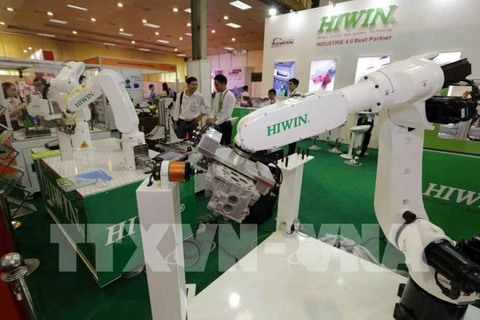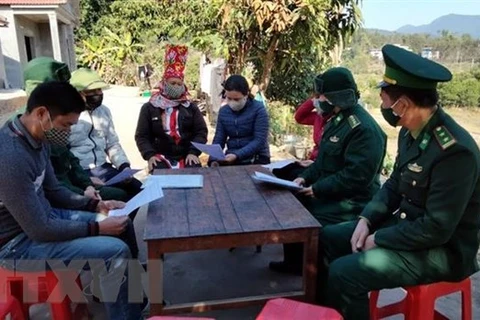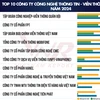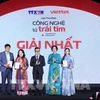Hanoi (VNA) – Vietnam sets a goal of being listed in Top 4 in ASEAN and Top 50 of the world in terms of artificial intelligence (AI) research, development and application by 2030.
The target was set in a National Strategy on AI Research, Development and Application by 2030 recently approved by Prime Minister Nguyen Xuan Phuc.
The strategy aims at stepping up AI research, development and application to make it an important technological industry of Vietnam.
By 2030, Vietnam will become a centre for innovation and development of AI solutions and applications in the Southeast Asian region and the world. The country aims to build 10 AI brands of high prestige in the region, develop three national centres on big data and high performance computing, and connect big data and high performance computing centres nationwide into a network and form 50 open datasets in all socio-economic fields to better serve AI research, development and application.
Under the strategy, Vietnam will set up three national innovative centres on AI, and have at least one representative in the list of ASEAN’s 20 leading R&D and training facilities in this sphere.
To achieve these goals, the strategy puts forward orientations, such as building a legal document system and legal corridor related to AI, developing an AI ecosystem, and boosting the application of AI and international cooperation in the field./.
The target was set in a National Strategy on AI Research, Development and Application by 2030 recently approved by Prime Minister Nguyen Xuan Phuc.
The strategy aims at stepping up AI research, development and application to make it an important technological industry of Vietnam.
By 2030, Vietnam will become a centre for innovation and development of AI solutions and applications in the Southeast Asian region and the world. The country aims to build 10 AI brands of high prestige in the region, develop three national centres on big data and high performance computing, and connect big data and high performance computing centres nationwide into a network and form 50 open datasets in all socio-economic fields to better serve AI research, development and application.
Under the strategy, Vietnam will set up three national innovative centres on AI, and have at least one representative in the list of ASEAN’s 20 leading R&D and training facilities in this sphere.
To achieve these goals, the strategy puts forward orientations, such as building a legal document system and legal corridor related to AI, developing an AI ecosystem, and boosting the application of AI and international cooperation in the field./.
VNA
























